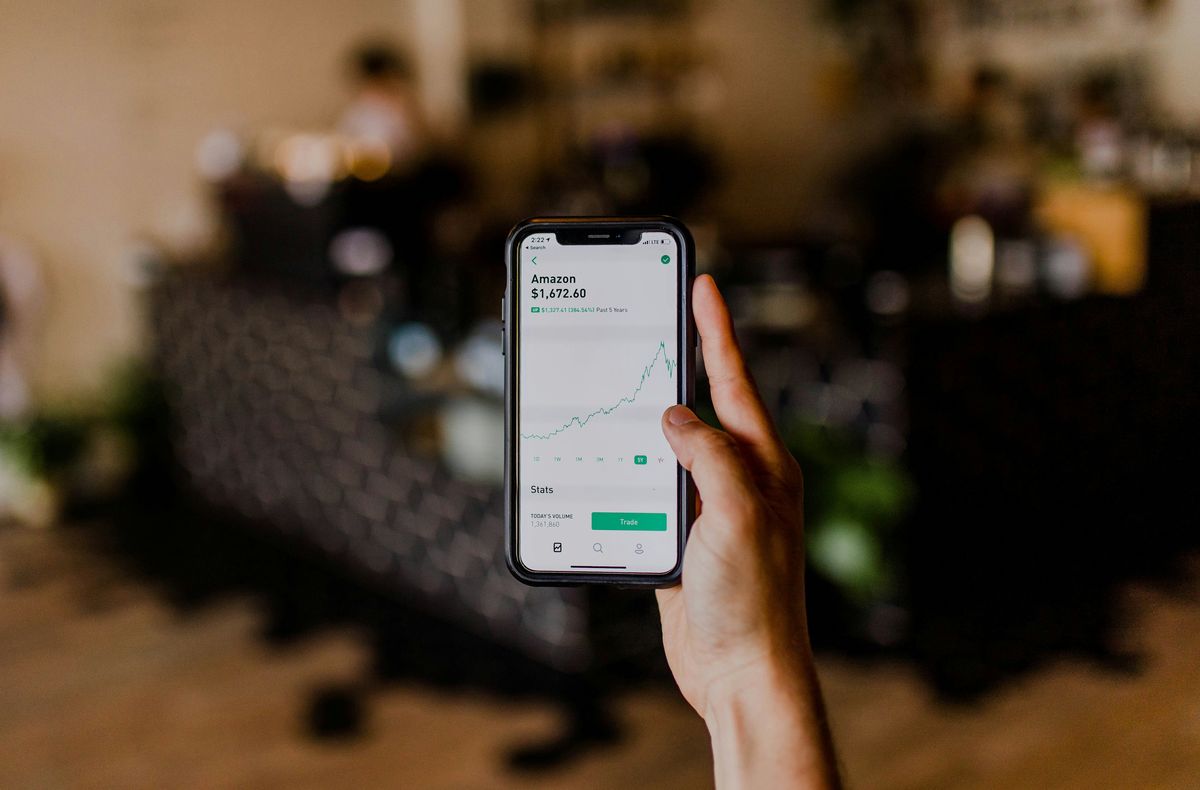The digital currency landscape is evolving rapidly, and with it, the platforms that facilitate cryptocurrency trading. In 2023, crypto exchanges are not just trading venues but ecosystems that offer a range of services, from spot trading to staking, lending, and even NFT marketplaces. As the industry matures, understanding the regulatory environment, identifying key exchange features, and keeping up with emerging trends become crucial for anyone looking to navigate this space. This article explores the top crypto exchanges of 2023, their compliance with regulations, and the latest innovations shaping the digital currency frontier.
Key Takeaways
- The regulatory environment for cryptocurrencies in the US is a delicate balance between fostering innovation and ensuring control, with exchanges like Coinbase, Kraken, and Bitstamp meeting current compliance standards.
- When selecting a crypto exchange, it’s important to consider a balance between essential security features and personal preferences such as the variety of available coins or user experience.
- Coinbase, Kraken, and Bitstamp are among the top-rated exchanges for 2023, each with a unique approach to security, transparency, and regulatory challenges.
- While not all top cryptocurrency exchanges are based in the United States, American traders have access to reputable platforms that are compliant with US regulations.
- Emerging trends in the crypto exchange industry include the rise of NFTs, innovations in crypto wallet functionality, and a continuous evolution of services offered by exchanges.
Understanding the Regulatory Environment


US Crypto Regulations: The Fine Line Between Innovation and Control
The United States has been a crucible for cryptocurrency regulation, with various agencies contributing to a multifaceted legal framework. The primary regulators include the SEC, OCC, FinCEN, and the IRS, each with its own set of rules and expectations. State-level authorities further complicate the regulatory tapestry, making compliance a sophisticated dance for crypto exchanges.
While the SEC’s focus is on transparency and fraud prevention, striking the right balance between innovation and control is a nuanced affair. The dialogue between regulators and the crypto community is ongoing, with the future of US crypto regulations hinging on a compromise that fosters entrepreneurship while safeguarding security, transparency, and investor confidence.
The challenge for exchanges is to navigate this complex environment without stifling the innovative potential that cryptocurrencies offer.
Exchanges like Coinbase, Kraken, and Bitstamp have managed to align with these regulations, setting a standard for compliance. As the landscape evolves, so too will the strategies of exchanges to remain within the bounds of the law, while pushing the envelope of digital finance.
The Role of Main Regulators and Compliance Obligations
In the dynamic landscape of digital currencies, compliance obligations are the bedrock for legitimate operations. Entities in the crypto space must navigate a complex web of regulations, which vary depending on the nature of their activities.
-
Registration Requirements: Crypto businesses may need to register with the Financial Crimes Enforcement Network (FinCEN) as money service businesses, or with the Securities and Exchange Commission (SEC) if they deal with securities tokens.
-
Reporting Obligations: There are multiple layers to reporting, including tax, FinCEN, SEC, and state-level requirements. Each carries its own set of rules and consequences for non-compliance.
-
Consumer Protection: Regulators mandate crypto businesses to prioritize consumer protection by providing transparent information, fair pricing, and securing personal data and funds.
Ensuring compliance is not just about adhering to the law; it’s about fostering trust and stability in the burgeoning crypto market.
Failure to comply can lead to severe repercussions, including legal penalties and reputational damage. It is imperative for businesses and individuals to stay informed and fulfill their obligations with diligence.
How Regulations Impact Your Choice of Crypto Exchange
When selecting a crypto exchange, understanding the regulatory environment is crucial. Regulations can significantly influence the services and features available to you. For instance, exchanges that adhere to stringent regulations may offer greater security and investor protection, but could also impose more restrictions on trading activities.
- Exchanges like Coinbase, Kraken, and Bitstamp comply with US regulations, ensuring a level of trustworthiness.
- Regulatory compliance may affect the availability of certain cryptocurrencies and trading pairs.
- The need to adapt to evolving regulations can lead to changes in exchange policies, impacting user experience.
It’s essential to stay informed about the latest regulatory changes as they can directly affect your trading strategies and the risks you’re willing to take.
Always do your own research (DYOR) to ensure that the exchange you choose aligns with your investment goals and risk tolerance, especially since regulations are subject to change. The balance between security, transparency, and the freedom to innovate is a delicate one that each exchange navigates differently.
Selecting the Ideal Crypto Exchange


How We Review Crypto Exchanges
Our approach to reviewing crypto exchanges is meticulous and user-focused. We start by collecting data based on user reviews to gauge public sentiment and experiences. This is followed by an in-depth investigation of the exchanges online, where we scrutinize their features, security measures, and overall reliability.
- Collect data based on user reviews.
- Investigate the crypto exchanges online.
- Test the exchanges ourselves when possible.
- Evaluate and rank exchanges based on our findings.
- Publish comprehensive reviews and guides.
Our ultimate goal is to provide our readers with transparent and actionable insights that can guide them in selecting a crypto exchange that best suits their needs.
We ensure that our reviews are up-to-date by revisiting the exchanges periodically, especially when they undergo significant updates or changes. By doing so, we maintain the relevance and accuracy of our recommendations.
Key Features to Look for in a Crypto Exchange
When venturing into the world of digital currencies, selecting the right crypto exchange is crucial. Security should be your top priority, ensuring that your assets are protected against potential threats. However, the ideal exchange also balances robust security with a user-friendly interface, making it accessible for both beginners and experienced traders.
Beyond security, consider the following features:
- Variety of cryptocurrencies offered
- Fee structure and transparency
- Quality of customer support
- Ease of deposit and withdrawal
- Exchange liquidity and trading volume
It’s essential to find an exchange that aligns with your specific needs, whether you’re focused on trading mainstream cryptocurrencies or exploring a wider array of digital assets.
Remember, while some features might be universally important, others depend on your personal trading style and goals. Evaluate each exchange carefully to ensure it meets your requirements.
How to Pick the Best Crypto Exchange for Yourself
Choosing the right crypto exchange is a personal journey that hinges on finding a platform that aligns with your individual needs and preferences. Consider the security measures, user interface, asset variety, and fee structure as these are critical factors in your decision-making process.
When evaluating exchanges, it’s essential to weigh their features against your trading goals. Are you a beginner looking for simplicity, or do you require advanced tools for complex trades? Here’s a quick checklist to guide you:
- Security protocols and history
- Ease of use and customer support
- Supported cryptocurrencies and trading pairs
- Fee structure and payment options
- Regulatory compliance and reputation
Remember, the best exchange for you is one that not only meets the industry standards but also caters to your specific trading style and requirements.
Lastly, keep an eye on recent rankings and reviews, as they can provide a snapshot of current user preferences and industry standings. For instance, a recent article by Fortune highlighted the top crypto exchanges and apps of April 2023, including popular choices like Crypto.com, Uphold, and Coinbase.
Top-Rated Crypto Exchanges for 2023


Coinbase: Balancing Essential Features with User Preferences
Coinbase has established itself as a premier destination for both novice and seasoned crypto traders. The platform’s user-friendly interface and intuitive design cater to beginners, while its robust security measures provide peace of mind for all users. Coinbase’s commitment to security is evident in their practice of storing the majority of customer funds in offline cold storage, shielding them from online threats.
When selecting a crypto exchange, it’s crucial to weigh the essential features against personal preferences. Coinbase strikes this balance by offering a comprehensive suite of services while also accommodating individual needs. For instance, while top-tier security is a standard expectation, the variety of coins offered may be more or less important to you depending on your trading interests.
Coinbase’s proactive approach to regulatory compliance, through KYC and AML measures, ensures a trustworthy environment for its users.
It’s worth noting that the regulatory landscape is in constant flux, which can lead to changes in how exchanges operate. As such, staying informed with the latest developments is key. A detailed comparison of Coinbase vs. Gemini highlights Coinbase’s broader feature set and wider availability, making it a top choice for many traders based on their preferences.
Kraken: Security and Transparency at the Forefront
Kraken has established itself as a bastion of security within the digital currency landscape. The exchange employs advanced security measures, such as two-factor authentication (2FA) and cold storage for funds, ensuring a robust defense against potential threats. This commitment to security has not only bolstered its reputation but also solidified user trust.
In the face of evolving US government crypto regulations, Kraken has strived to remain compliant, adapting to the dynamic regulatory environment. The exchange adheres to standard KYC and AML protocols, aligning with the industry’s push for transparency and accountability.
Despite its comprehensive offerings, Kraken’s services are not universally available. Residents from New York and Washington state are excluded, and US traders face limitations on certain features like on-chain staking and futures trading.
Kraken’s dedication to user experience is evident through its user-friendly interface and diverse order types, catering to both novice and seasoned traders. With over 500 different cryptocurrencies available, the platform offers a rich selection for trading and investment.
| Feature | Availability |
|---|---|
| Two-factor Authentication | Yes |
| Cold Storage for Funds | Yes |
| User-Friendly Interface | Yes |
| Over 500 Cryptocurrencies | Yes |
| Services in New York and Washington | No |
| On-Chain Staking for US Traders | No |
Kraken’s journey, while marked by regulatory challenges, showcases a steadfast commitment to navigating the complex landscape of digital currencies with a focus on security and transparency.
Bitstamp: Navigating Regulatory Challenges Successfully
Bitstamp stands out as a beacon of compliance in the crypto exchange landscape. It holds 50 licenses and registrations in key jurisdictions globally, showcasing its commitment to operating within the legal frameworks. This dedication to compliance has not only bolstered its reputation but also provided a sense of security for its users.
The exchange’s proactive approach to regulation is evident in its extensive team dedicated to compliance, legal matters, and risk management. Bitstamp’s efforts to maintain a secure and regulated environment echo the sentiments of Bitstamp USA Chief Bobby Zagotta, who notes a marked increase in institutional preparation for crypto adoption in 2023.
Bitstamp’s success in navigating regulatory challenges is a testament to its robust infrastructure and forward-thinking leadership.
While Bitstamp aligns with other top exchanges in prioritizing security, it also plays a crucial role in the evolving relationship between innovation and regulatory control. As US crypto regulations adapt, Bitstamp’s journey reflects the broader path of crypto in the US and the global digital finance landscape.
Cryptocurrency Exchanges and the US Market


Are All the Top Cryptocurrency Exchanges Based in the United States?
While the United States is home to some of the leading cryptocurrency exchanges, such as Kraken and Coinbase, the landscape of top exchanges is truly global. Binance, for instance, is headquartered in Tokyo, Japan, and offers competitive low fees and a wide selection of coins. Similarly, Bitstamp, known for its reliable BTC purchase options, is based in Luxembourg, and CEX, a multi-asset platform, operates out of the United Kingdom.
The location of a cryptocurrency exchange often reflects strategic business decisions and typically does not impact the user experience.
For US traders, the regulatory environment dictates which exchanges are accessible. While Coinbase, Kraken, and Bitstamp are among the most reputable exchanges available to US customers, it’s crucial to stay informed as regulations are in constant flux, potentially affecting the availability of services.
Here is a quick overview of some top exchanges and their locations:
- Binance: Tokyo, Japan
- Bitstamp: Luxembourg
- CEX: United Kingdom
- Kraken: United States
- Coinbase: United States
Always remember to do your own research (DYOR) to ensure you have the most current information regarding the exchanges you choose to use.
Top Exchanges for US Traders
For US traders, selecting a crypto exchange that aligns with the stringent regulatory framework is crucial. Coinbase, Kraken, and Bitstamp are among the top exchanges that have managed to navigate the regulatory landscape successfully, offering services to American customers.
| Exchange | Founded | Headquarters | Notable Features |
|---|---|---|---|
| Coinbase | 2012 | USA | User-friendly, widely trusted |
| Kraken | 2011 | USA | High security, diverse crypto assets |
| Bitstamp | 2011 | Luxembourg | Low fees, strong regulatory compliance |
These platforms not only provide a secure and transparent trading environment but also ensure compliance with US regulations, making them a reliable choice for traders based in the United States.
It’s important for traders to consider the regulatory adherence of exchanges, as it can significantly impact the safety and availability of their investments in the digital currency space.
The Future of Crypto Exchanges in the US Regulatory Landscape
As the US continues to lead in establishing crypto regulations, the future of exchanges operating within its borders is a subject of much speculation. The balance between fostering innovation and ensuring a secure, transparent market is delicate. Exchanges like Coinbase, Kraken, and Bitstamp have managed to navigate these waters, adapting to the ever-evolving regulatory demands.
The ongoing journey of US crypto regulation will not only shape the domestic path of digital finance but also influence the global landscape.
The primary regulatory bodies such as the SEC, OCC, FinCEN, and IRS, along with state-level actors, play pivotal roles in this process. Their collective efforts have resulted in a complex regulatory environment that has, at times, pushed exchanges away. Yet, the resilience and adaptability of top platforms signal a robust future for crypto exchanges in the US.
Looking ahead, the key for exchanges will be to maintain compliance while also being agile enough to respond to new regulatory developments. This will ensure they can continue to provide services that meet the needs of investors and maintain their confidence in the market.
Emerging Trends and Innovations


The Most Trending Findings in the Crypto Exchange Sphere
In the ever-evolving landscape of digital currencies, staying abreast of the latest trends is crucial for informed decision-making. The rise of decentralized finance (DeFi) platforms has marked a significant shift in the crypto exchange ecosystem, offering users more autonomy and financial services beyond mere currency exchange.
- Decentralized exchanges (DEXs) are gaining traction, providing peer-to-peer trading without the need for intermediaries.
- The integration of traditional banking services into crypto platforms is blurring the lines between conventional and digital finance.
- Security enhancements, such as multi-factor authentication and cold storage solutions, are becoming standard features.
The convergence of regulatory frameworks and technological innovation is shaping the future of crypto exchanges, making compliance a competitive advantage rather than a hindrance.
What Is an NFT: A Look into the World of Digital Collectibles
Non-fungible tokens (NFTs) have emerged as a revolutionary way to assert digital ownership and authenticity. NFTs transform digital works into one-of-a-kind, verifiable assets that can be bought, sold, or traded on the blockchain. The allure of NFTs lies in their uniqueness and the security provided by blockchain technology, ensuring that each NFT is distinct and ownership is indisputable.
- Digital Identity and Ownership: NFTs enable the creation of unique digital identities and the ownership of digital assets, from artwork to virtual real estate.
- Virtual Real Estate: Platforms like Decentraland and The Sandbox have popularized blockchain-based virtual land transactions, with NFTs serving as deeds.
- DeFi and NFTs: The intersection of decentralized finance (DeFi) and NFTs offers new financial instruments within the digital realm.
The rise of NFTs signifies a shift towards a digital economy where virtual goods possess real-world value and tradability.
The integration of NFTs into various platforms has been pivotal for their success, with companies onboarding their goods as NFTs to capitalize on this digital rebellion. As the market for NFTs continues to grow, understanding their role and potential is essential for anyone looking to navigate the digital currency frontier.
The Evolution of Crypto Wallets and Their Functionality
The progression of cryptocurrency wallets has been pivotal in shaping user interaction with digital assets. Wallets have transitioned from mere storage units to sophisticated platforms offering a range of services, including staking, swapping, and participation in decentralized finance (DeFi).
- Storage: Initially, wallets were primarily for storing cryptocurrencies securely.
- Transactions: Over time, they incorporated features to send and receive transactions more efficiently.
- Integration: Modern wallets now integrate with various blockchain services and support multiple currencies.
- Security: The focus on security has intensified, with multi-signature and hardware wallet options becoming more prevalent.
The seamless integration of wallets with emerging blockchain services underscores their importance in the broader ecosystem. As wallets evolve, they not only enhance security but also enrich the user experience by providing more control and accessibility to a range of crypto-related activities.
Conclusion
As we navigate the digital currency frontier, it’s clear that the landscape of crypto exchanges is as dynamic as the cryptocurrencies they trade. In 2023, exchanges like Coinbase, Kraken, and Bitstamp have set the standard for compliance and reliability, aligning with the evolving US crypto regulations that aim to balance innovation with investor protection. While the top exchanges offer robust security features and a variety of trading options, it’s crucial for users to conduct their own research (DYOR) to stay informed about ongoing regulatory changes and to choose an exchange that aligns with their individual needs. The future of digital finance continues to unfold, and staying updated with the latest information will be key to making informed decisions in this rapidly changing domain.
Frequently Asked Questions
What are the main US crypto regulations that affect exchanges?
US crypto regulations focus on balancing innovation with control, including obligations around anti-money laundering (AML), know your customer (KYC), and the safeguarding of consumer assets. These regulations are enforced by main regulators like the SEC and FinCEN.
How do regulations impact my choice of crypto exchange?
Regulations can affect the availability of certain exchanges in your region, the types of cryptocurrencies you can trade, and the level of security and compliance an exchange must adhere to, which in turn can influence your decision.
What should I look for when selecting a crypto exchange?
Key features to consider include security measures, regulatory compliance, available cryptocurrencies, fee structure, user experience, and customer support. Personal preferences such as trading volume and educational resources may also be important.
Are all top cryptocurrency exchanges based in the United States?
No, not all top cryptocurrency exchanges are based in the United States. However, many reputable exchanges like Coinbase, Kraken, and Bitstamp offer services to US traders and comply with US regulations.
What is an NFT and why is it significant in the crypto space?
An NFT, or Non-Fungible Token, represents ownership of a unique digital item or piece of content using blockchain technology. It’s significant because it has created a new market for digital collectibles and has implications for artists, creators, and investors.
How can I stay updated on the latest crypto exchange regulations and features?
To stay informed, regularly check reputable crypto news sources, follow updates from regulatory bodies, and engage with community discussions. Always do your own research (DYOR) for the latest information on crypto exchange regulations and features.






